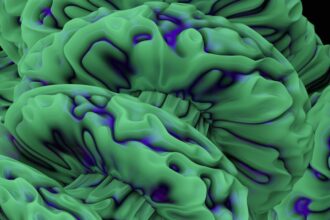Depersonalization and derealization are complex psychological phenomena that can leave individuals feeling detached from themselves or their surroundings. When you experience depersonalization, you may feel as though you are observing yourself from outside your body, as if you are a spectator in your own life. This sensation can be disorienting and unsettling, often leading to feelings of confusion and anxiety.
On the other hand, derealization involves a sense of unreality regarding your environment. You might perceive the world around you as foggy, dreamlike, or distorted, making it difficult to connect with your surroundings. These experiences can occur in isolation or as part of a broader mental health condition, such as anxiety or depression.
Understanding these phenomena is crucial for recognizing their impact on your daily life. You may find that these feelings can be triggered by stress, trauma, or even fatigue. By acknowledging the nature of depersonalization and derealization, you can begin to explore the underlying factors contributing to these sensations and seek appropriate support.
Key Takeaways
- Depersonalization is a feeling of being disconnected from oneself, while derealization is a sense of being detached from the external world.
- Symptoms of depersonalization and derealization include feeling like an outside observer of one’s thoughts or body, emotional numbness, and distorted perception of time and space.
- Seeking professional help from a therapist or psychiatrist is crucial for proper diagnosis and treatment of depersonalization and derealization.
- Psychotherapy, such as cognitive behavioral therapy (CBT) and dialectical behavior therapy (DBT), can help individuals learn coping strategies and address underlying issues contributing to their symptoms.
- Medication, such as antidepressants or anti-anxiety drugs, may be prescribed by a healthcare professional to help manage symptoms of depersonalization and derealization.
Recognizing the Symptoms
Recognizing the symptoms of depersonalization and derealization is an essential step toward understanding your experiences. You might notice that during episodes of depersonalization, you feel disconnected from your thoughts, emotions, or sense of identity. This disconnection can manifest as a feeling of being robotic or emotionally numb.
You may struggle to recall personal memories or feel as though your life is happening to someone else. These sensations can be distressing and may lead you to question your sanity or reality. Derealization symptoms often include a distorted perception of time and space.
You might feel as though you are living in a movie or that the world around you is not quite real. Colors may seem muted, sounds may feel distant, and familiar places may appear foreign. These experiences can be frightening, especially if they occur unexpectedly.
By recognizing these symptoms, you can better articulate your experiences to healthcare professionals and seek the help you need.
Seeking Professional Help

If you find yourself grappling with depersonalization and derealization, seeking professional help is a vital step toward recovery. Mental health professionals can provide you with the tools and support necessary to navigate these challenging experiences. You may feel hesitant to reach out for help, fearing judgment or misunderstanding, but it’s important to remember that mental health issues are common and treatable.
A qualified therapist or psychiatrist can help you explore the root causes of your symptoms and develop coping strategies tailored to your needs. When seeking professional help, consider looking for a mental health provider who specializes in dissociative disorders or anxiety-related conditions. They can offer a safe space for you to discuss your feelings and experiences without fear of stigma.
Therapy can be a transformative process, allowing you to gain insight into your symptoms and learn effective ways to manage them. Remember, taking this step is not a sign of weakness; rather, it demonstrates your commitment to understanding yourself better and improving your quality of life.
Psychotherapy as a Treatment Option
| Treatment Option | Effectiveness | Duration | Cost |
|---|---|---|---|
| Psychotherapy | Varies by individual and type | Short-term or long-term | Depends on therapist and insurance coverage |
Psychotherapy is often considered one of the most effective treatment options for depersonalization and derealization. Through various therapeutic approaches, such as cognitive-behavioral therapy (CBT) or dialectical behavior therapy (DBT), you can learn to identify and challenge negative thought patterns that contribute to your feelings of detachment. In therapy, you will have the opportunity to explore the underlying issues that may be triggering your symptoms, such as past trauma or chronic stress.
In addition to addressing cognitive patterns, psychotherapy can also provide you with coping strategies to manage episodes of depersonalization and derealization when they arise. Your therapist may guide you through grounding techniques that help anchor you in the present moment, allowing you to reconnect with your body and surroundings. By engaging in regular therapy sessions, you can develop a deeper understanding of yourself and cultivate resilience against future episodes.
Medication for Depersonalization and Derealization
While psychotherapy is often the first line of treatment for depersonalization and derealization, medication may also play a role in managing symptoms for some individuals. Antidepressants or anti-anxiety medications can help alleviate the underlying conditions that contribute to these dissociative experiences. If you find that your symptoms are significantly impacting your daily life, discussing medication options with a psychiatrist may be beneficial.
It’s important to approach medication with caution and under the guidance of a healthcare professional. Not every individual will respond to medication in the same way, and finding the right medication or dosage may take time. Additionally, medication should ideally be combined with therapy for a more comprehensive approach to treatment.
By working closely with your healthcare provider, you can determine the best course of action for managing your symptoms effectively.
Mindfulness and Grounding Techniques

Incorporating mindfulness and grounding techniques into your daily routine can be incredibly beneficial for managing symptoms of depersonalization and derealization. Mindfulness involves paying attention to the present moment without judgment, allowing you to reconnect with your thoughts, feelings, and surroundings. Practicing mindfulness can help reduce anxiety and promote a sense of calmness when you feel detached from reality.
Grounding techniques are practical strategies designed to bring you back to the present moment when experiencing dissociation. These techniques may include focusing on your breath, engaging your senses by noticing what you see, hear, smell, taste, and touch, or using physical objects like stress balls or textured fabrics to anchor yourself in reality. By regularly practicing these techniques, you can build resilience against episodes of depersonalization and derealization, empowering yourself to navigate challenging moments with greater ease.
Lifestyle Changes to Manage Symptoms
Making lifestyle changes can significantly impact your ability to manage symptoms of depersonalization and derealization effectively. Prioritizing self-care is essential; this includes getting enough sleep, maintaining a balanced diet, and engaging in regular physical activity. Sleep deprivation can exacerbate feelings of detachment, so establishing a consistent sleep routine is crucial for your overall well-being.
Additionally, reducing stress through relaxation techniques such as yoga or meditation can help create a sense of stability in your life. Engaging in hobbies that bring you joy or connecting with supportive friends and family members can also foster a sense of belonging and connection. By making these lifestyle adjustments, you create an environment conducive to healing and resilience against dissociative experiences.
Support Groups and Peer Support
Connecting with others who share similar experiences can be incredibly validating and comforting when dealing with depersonalization and derealization. Support groups provide a safe space for individuals to share their stories, exchange coping strategies, and offer encouragement to one another. You may find that hearing others’ experiences helps normalize your feelings and reduces the sense of isolation that often accompanies these symptoms.
Peer support can also extend beyond formal support groups; online forums and communities dedicated to mental health discussions can provide additional resources and connections. Engaging with others who understand what you’re going through can foster a sense of camaraderie and hope as you navigate your journey toward healing.
Addressing Underlying Causes
To effectively manage depersonalization and derealization, it’s essential to address any underlying causes contributing to these experiences. Trauma is often a significant factor; whether it’s past abuse, loss, or other distressing events, unresolved trauma can manifest as dissociative symptoms. Working with a therapist who specializes in trauma-informed care can help you process these experiences in a safe environment.
Additionally, exploring any co-occurring mental health conditions such as anxiety or depression is crucial for comprehensive treatment. By addressing these underlying issues through therapy or medication when necessary, you can create a more solid foundation for managing depersonalization and derealization effectively.
Holistic Approaches to Treatment
In addition to traditional therapeutic methods, many individuals find success in holistic approaches to treatment for depersonalization and derealization. Holistic practices focus on treating the whole person—mind, body, and spirit—rather than just addressing symptoms in isolation. Techniques such as acupuncture, aromatherapy, or herbal supplements may complement conventional treatments by promoting relaxation and overall well-being.
Engaging in creative outlets like art therapy or music therapy can also provide an avenue for self-expression and emotional release. These holistic approaches encourage self-discovery and personal growth while fostering a deeper connection between mind and body.
Long-Term Management and Relapse Prevention
Long-term management of depersonalization and derealization requires ongoing commitment to self-care and awareness of potential triggers. Developing a personalized relapse prevention plan with the help of a mental health professional can empower you to recognize early signs of dissociation and implement coping strategies before symptoms escalate. Regularly revisiting therapeutic techniques learned in counseling sessions—such as mindfulness practices or grounding exercises—can reinforce your ability to manage symptoms effectively over time.
Additionally, maintaining open communication with supportive friends or family members about your experiences can create an understanding network that encourages accountability in your healing journey. By prioritizing self-awareness and actively engaging in treatment strategies, you can cultivate resilience against depersonalization and derealization while enhancing your overall quality of life.
A related article on this topic can be found on the Unplugged Psychology website, which delves into various therapeutic approaches and coping strategies for individuals experiencing these dissociative symptoms. For more detailed insights, you can read the full article by visiting Unplugged Psychology. This resource provides valuable information for both patients and mental health professionals seeking to better understand and manage these complex conditions.
LEARN MORE About Unmasking the Mysteries Behind Depersonalization and Derealization
FAQs
What is depersonalization and derealization?
Depersonalization is a mental health condition characterized by feeling detached from one’s thoughts, feelings, and sensations. Derealization is a similar condition where individuals feel disconnected from their surroundings, experiencing a sense of unreality.
What are the common symptoms of depersonalization and derealization?
Common symptoms of depersonalization and derealization include feeling like an outside observer of one’s thoughts or body, feeling like the world is unreal or distorted, emotional numbness, and a sense of detachment from oneself or the environment.
What are the treatment options for depersonalization and derealization?
Treatment for depersonalization and derealization may include psychotherapy, medication, and self-care strategies. Cognitive-behavioral therapy (CBT) and mindfulness-based approaches have shown to be effective in treating these conditions. Medications such as antidepressants or anti-anxiety drugs may also be prescribed in some cases.
How effective is treatment for depersonalization and derealization?
The effectiveness of treatment for depersonalization and derealization can vary from person to person. Some individuals may experience significant improvement with therapy and medication, while others may find it more challenging to manage their symptoms.
Are there any self-care strategies that can help manage depersonalization and derealization?
Self-care strategies such as regular exercise, stress management techniques, maintaining a healthy lifestyle, and avoiding alcohol and drugs can help manage symptoms of depersonalization and derealization. Engaging in activities that promote relaxation and mindfulness, such as yoga or meditation, may also be beneficial.
Can depersonalization and derealization be completely cured?
While there is no guaranteed cure for depersonalization and derealization, many individuals are able to effectively manage their symptoms and lead fulfilling lives with the help of therapy, medication, and self-care strategies. It is important to seek professional help and support to find the most effective treatment approach for each individual.




